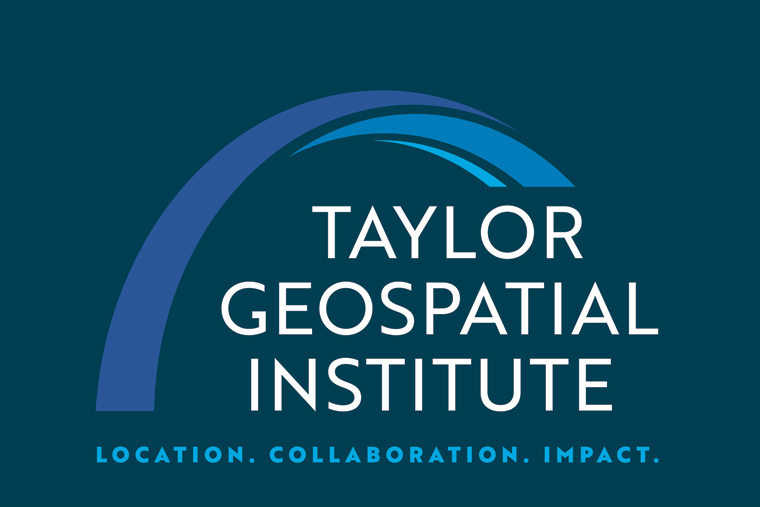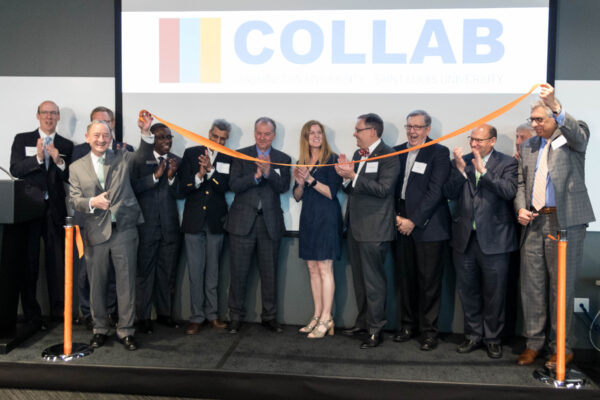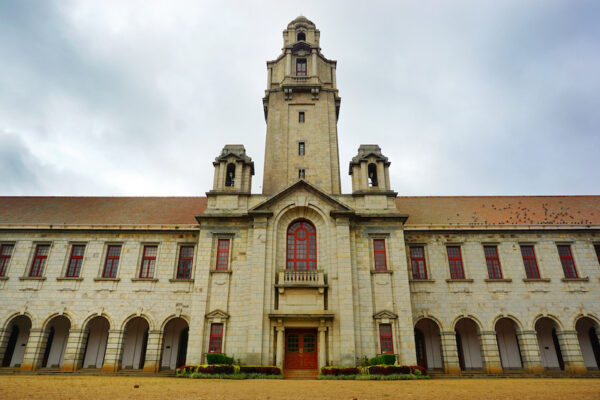
Leaders from St. Louis’ business, civic, academic and governmental communities came together April 21 to celebrate the launch of the Taylor Geospatial Institute, a first-of-its-kind organization that brings together eight leading research institutions to collaborate on research into geospatial technology. The institute’s establishment implements a key component of the GeoFutures Strategic Roadmap, the St. Louis region’s plan to become the world’s geospatial center in the next decade.
“Geospatial is the critical technology in nearly everything we do, and it is imperative that St. Louis have the world’s leading geospatial research institution to fulfill our promise as the global center for geospatial technology in the next decade,” said Andrew C. Taylor, executive chairman of Enterprise Holdings Inc. and founding chair of Greater St. Louis Inc. “It is my hope that this institute will cement St. Louis as the world’s true center for geospatial excellence.”
St. Louis’ future as global center of geospatial technology
The Taylor Geospatial Institute is funded by a legacy investment from Taylor, with supporting investments from each of the eight member institutions. It builds on St. Louis’ significant geospatial assets and accelerates the region’s position as the global center of geospatial innovation, impact and excellence.

“It is clear that many of the challenges of the 21st century are not uniformly distributed across the globe but vary according to various demographic and geographic attributes,” said Aaron Bobick, dean and the James M. McKelvey Professor of the McKelvey School of Engineering at Washington University in St. Louis. “For much of the research at Washington University, whether it is environmental health or climate impact on biodiversity, geospatial analysis is fundamental to understanding the problems and creating the solutions.”
By bringing together research institutions from across the St. Louis metro area, the Taylor Geospatial Institute will act as a regional hub for access to and development of technology powered by big data analytics and computing resources to support a collaborative research and training environment with a focus on:
- Food security
- Core geospatial science and computation
- Geospatial health
- National security
The institutions that will collaborate at the Taylor Geospatial Institute are: Donald Danforth Plant Science Center, Harris-Stowe State University, Missouri University of Science & Technology, Saint Louis University, University of Illinois at Urbana-Champaign, University of Missouri-Columbia, University of Missouri-St. Louis and Washington University. The institute initially will be housed at Saint Louis University.
Read more about the effort on the engineering website.


